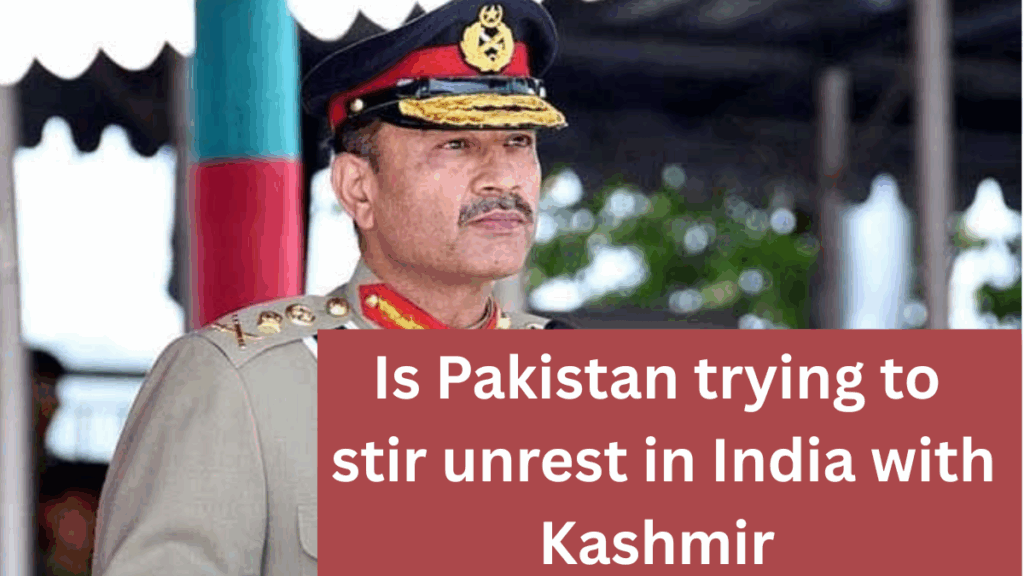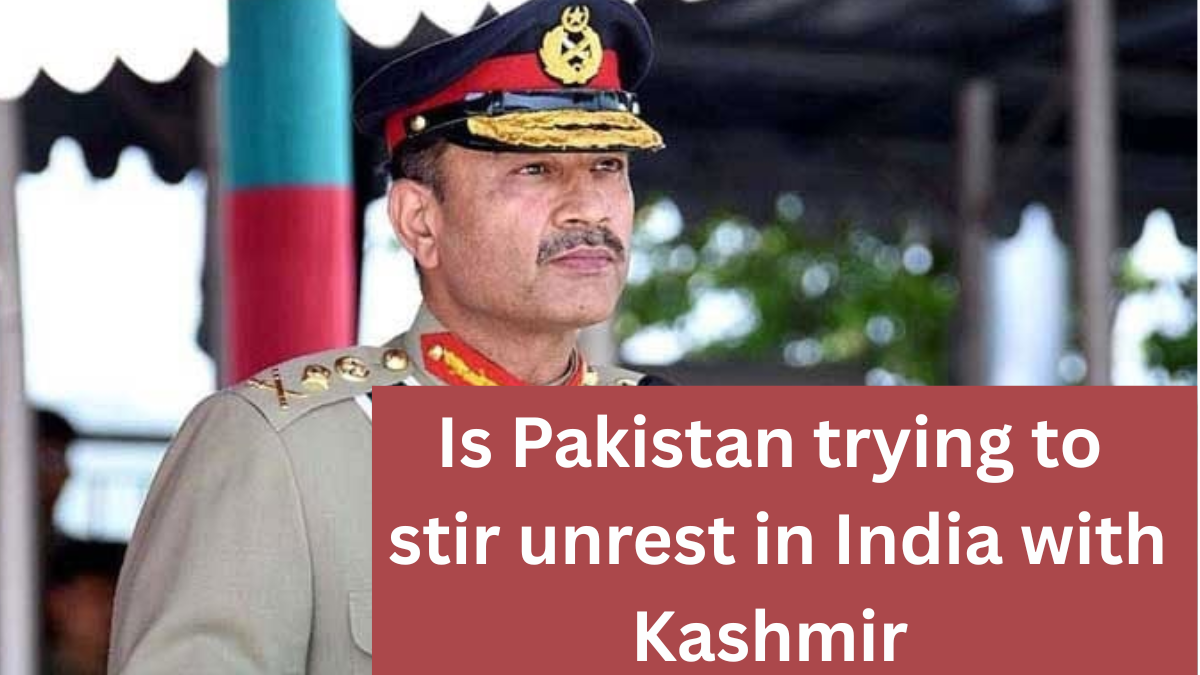In a passionate and historically charged address at the Overseas Pakistanis Convention in Islamabad, Pakistan’s Army Chief General Asim Munir urged expatriate Pakistanis to nurture a strong national identity in their children—an identity anchored in the ideological foundations of the country’s creation.

A Call to the Diaspora: “Tell Pakistan’s Story to Your Children”
Speaking to a packed hall, Munir emphasized the need for the diaspora to pass on the legacy of Pakistan’s ideological beginnings.
“You have to tell Pakistan’s story to your children so they don’t forget that our forefathers thought we were different from Hindus in every possible aspect of life,” he stated.
Key Messages from Munir’s Speech:
-
Pakistan’s roots lie in distinct religion, culture, and customs compared to its neighbors.
-
Reaffirmation of the Two-Nation Theory—the ideological basis of Pakistan’s formation.
-
Overseas Pakistanis must preserve cultural and national identity in future generations.
-
Reiterated Pakistan’s unwavering stance on Kashmir.
What Is the Two-Nation Theory?
| Concept | Details |
|---|---|
| Origin | Introduced by Allama Iqbal and formalized by Jinnah |
| Core Idea | Muslims and Hindus are two distinct nations |
| Foundation of | Pakistan’s creation in 1947 |
| Munir’s Emphasis | Pakistanis must protect this ideological identity |
India’s Firm Rebuttal: “Kashmir Is Ours”
India didn’t take the comments lightly. Responding sharply, Ministry of External Affairs (MEA) spokesperson Randhir Jaiswal dismissed Munir’s claim about Kashmir being Pakistan’s “jugular vein.”
“How can anything foreign be in a jugular vein? This is a Union Territory of India,” said Jaiswal.
Strategic Distraction or Ideological Revival?
Indian intelligence officials suggest that the timing of Munir’s remarks may not be a coincidence.
Context Behind the Speech:
-
Internal turmoil in Pakistan: Economic distress, violence in Karachi, unrest in Balochistan.
-
Increasing clashes with TTP and ISIS-linked groups.
-
Possible attempt to divert public attention from domestic instability.
-
Coincides with India’s Waqf Act debate, potentially provoking religious sentiment.
| Challenges Facing Pakistan’s Army | Details |
|---|---|
| Balochistan insurgency | Ongoing attacks from separatist groups |
| Urban violence | Karachi witnessing increased unrest |
| Extremist threats | Rise of TTP and ISIS activities |
| Public trust erosion | Growing dissatisfaction with the military |
Critics Call It a “Polarising Maneuver”
Observers argue that Munir’s speech may deepen already existing rifts.
Concerns Raised by Analysts:
-
Revival of the Two-Nation Theory could reignite divisive ideologies.
-
Rhetoric may undermine regional peace and India-Pakistan diplomacy.
-
Attempts to rally domestic support through nationalist sentiment.
-
Risk of passing a legacy of hostility to future generations.
A Polarised Response:
-
Pakistani diaspora: Some welcomed the message as patriotic.
-
Indian social media: Condemned the anti-Hindu language as “shameful.”
Kashmir: A Refrain Revisited
Munir ended his speech with a strong message about Kashmir, echoing Pakistan’s long-standing claim.
“Our stance is very clear. It was our jugular vein, it will be our jugular vein, and we will not forget it.”
Final Thoughts
While General Munir’s speech aimed to ignite patriotism and cultural pride among overseas Pakistanis, it has raised eyebrows across the border and within policy circles. His call for ideological revival might strike a chord with some, but critics fear it may hinder peace efforts and deepen national and regional divides.
FAQs
1. What is the Two-Nation Theory mentioned by General Munir?
The Two-Nation Theory is the idea that Muslims and Hindus in colonial India were fundamentally different in religion, culture, and societal values, and hence could not coexist in a single nation. This ideology led to the creation of Pakistan in 1947.
2. Why did India respond strongly to Munir’s comments?
India views Kashmir as an integral part of its territory. Any reference to Kashmir as Pakistan’s “jugular vein” is seen as an infringement on its sovereignty, prompting strong rebuttals from Indian officials.
3. Is Munir’s speech connected to current issues in Pakistan?
Yes, many analysts believe the speech was strategically timed to distract from Pakistan’s internal issues such as economic instability, terrorism, and regional insurgency.
4. How are overseas Pakistanis reacting to the speech?
Reactions are mixed. Some praised the focus on national pride, while others criticized it as politically motivated and potentially divisive, especially in a time of global uncertainty and domestic unrest.
Click here to learn more
Pari is a passionate writer known for captivating stories that blend imagination and reality. Inspired by travel, history, and everyday moments, Pari crafts narratives that resonate deeply with readers.
